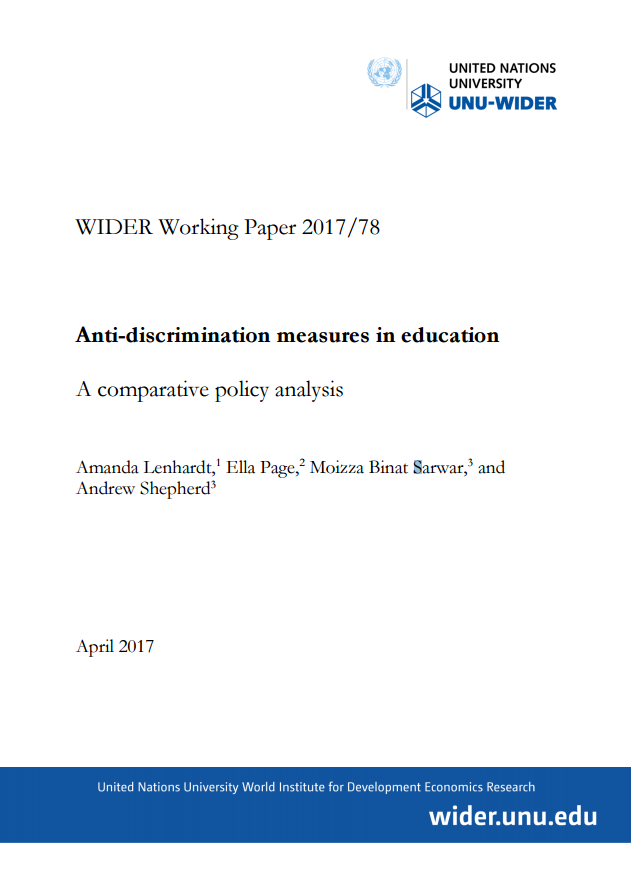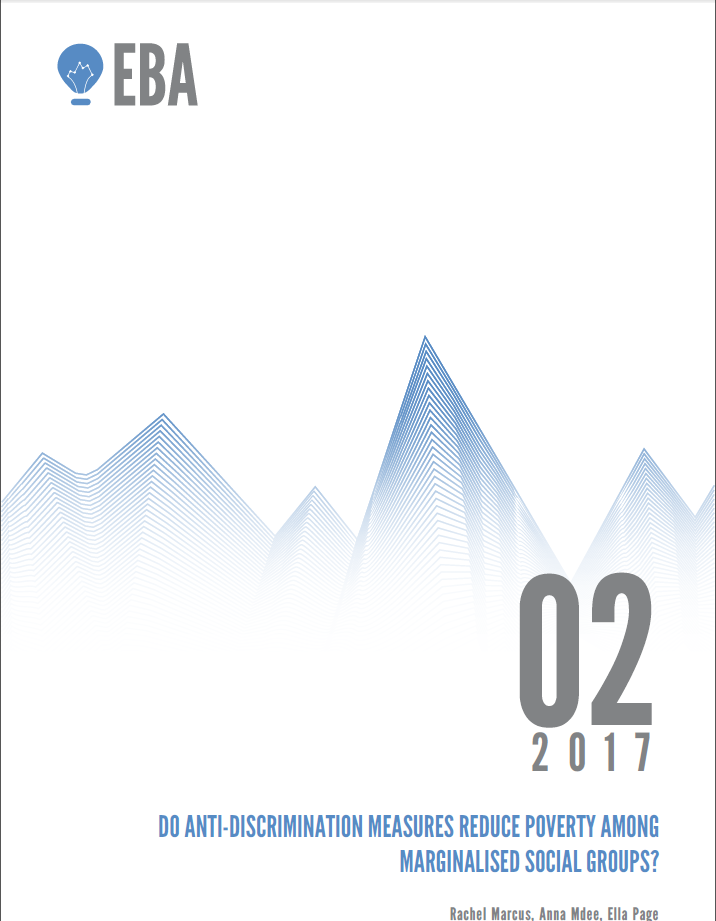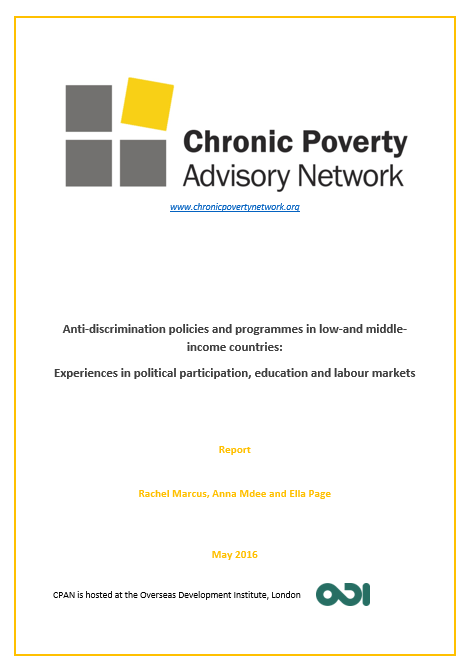Assessing the measures that are more effective in reducing discrimination against excluded groups and the poorest people and that consequently can contribute to improve their economic situation, has been at the centre of CPAN work since 2015 through the project Evaluating anti-discrimination measures.
The first phase of the project has focused on answering the question: which measures have worked in reducing discrimination against excluded groups and the poorest people, including the poorest children, in lower- and middle-income countries? The results of the research can be accessed here.
The first phase concluded that there were significant gaps in knowledge, especially around the extent and ways in which anti-discrimination or affirmative action measures contribute to reduced poverty or tackles the deprivations experienced by the poorest people. These is also little evidence on how measures (either general or specific) work for persons with disabilities. Finally, there is little useful knowledge on the role of social movements, the role of civil society advocacy or other inputs into government policy, and the resulting politics of policy development and implementation. Nor is there evidence on the ways in which laws are used to drive changes in institutional practices and resource re-allocation. This provides a substantial agenda for phase 2 which looks to continue the analysis of anti-discrimination measures.
Phase 2 aims to produce an extended evaluation, whose three specific objectives are:
- To evaluate the effects of anti-discrimination measures in labour markets and related human development services on poverty and inequality outcomes for targeted groups, such as the mentally ill, persons with disabilities more generally, disadvantaged children;
- To assess the efficacy of civil society advocacy, legal mechanisms and political party activities or other inputs to political decision-making, leading to more effective labour market and related policies, programmes and implementation;
- To examine the efficiency of resource allocation and implementation mechanisms established to counter the impacts of labour market discrimination on the poor.
The project also includes the completion of CPAN Poverty Eradication Policy Preparedness Index (PEPPI) database, which will inform the evaluation itself. The PEPPI includes an assessment of implementation and evaluation as well as legislation and policies or programmes in place, and enables countries to be ranked on their degree of policy preparedness. This exercise, combined with various indices of discrimination, would enable an assessment of the degree of global effort still required to address poverty-causing or poverty-maintaining discrimination.
Once finalised, the project’s outputs will be made available on this page.
Phase 2 of the project is supported by:




